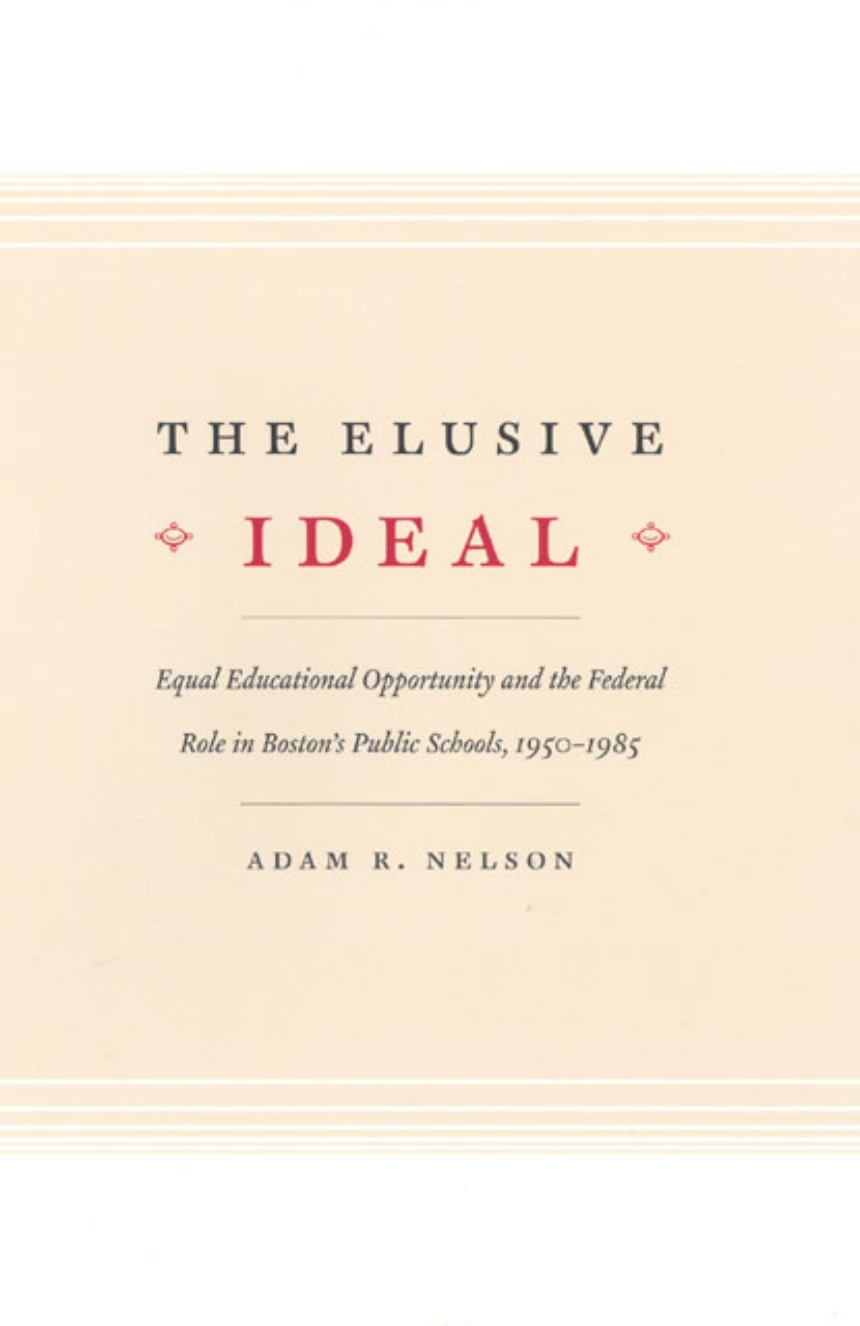The Elusive Ideal
Equal Educational Opportunity and the Federal Role in Boston’s Public Schools, 1950-1985
9780226571904
9780226571898
The Elusive Ideal
Equal Educational Opportunity and the Federal Role in Boston’s Public Schools, 1950-1985
In recent years, federal mandates in education have become the subject of increasing debate. Adam R. Nelson’s The Elusive Ideal—a postwar history of federal involvement in the Boston public schools—provides lessons from the past that shed light on the continuing struggles of urban public schools today. This far-reaching analysis examines the persistent failure of educational policy at local, state, and federal levels to equalize educational opportunity for all. Exploring deep-seated tensions between the educational ideals of integration, inclusion, and academic achievement over time, Nelson considers the development and implementation of policies targeted at diverse groups of urban students, including policies related to racial desegregation, bilingual education, special education, school funding, and standardized testing.
An ambitious study that spans more than thirty years and covers all facets of educational policy, from legal battles to tax strategies, The Elusive Ideal provides a model from which future inquiries will proceed. A probing and provocative work of urban history with deep relevance for urban public schools today, Nelson’s book reveals why equal educational opportunity remains such an elusive ideal.
An ambitious study that spans more than thirty years and covers all facets of educational policy, from legal battles to tax strategies, The Elusive Ideal provides a model from which future inquiries will proceed. A probing and provocative work of urban history with deep relevance for urban public schools today, Nelson’s book reveals why equal educational opportunity remains such an elusive ideal.
352 pages | 6 x 9 | © 2005
Historical Studies of Urban America
Education: Education--Economics, Law, Politics, History of Education
History: American History, Urban History
Law and Legal Studies: Law and Society
Political Science: Urban Politics
Reviews
Table of Contents
Preface and Acknowledgments
Introduction: The Evolution of School Reform in Boston
1. Pursuing Federal Funds, 1950-1963
2. Defining Disadvantage as Disability, 1963-1966
3. Aggravating Racial Imbalance, 1966-1968
4. Seeking Program Effectiveness, 1968-1971
5. Making "Appropriate" Placements, 1971-1974
6. Reconfiguring School Finance, 1974-1977
7. Evading Local Accountability, 1977-1980
8. Compelling Better Results? 1980-1985
Conclusion: The Complex History of American School Reform
Notes
Index
Introduction: The Evolution of School Reform in Boston
1. Pursuing Federal Funds, 1950-1963
2. Defining Disadvantage as Disability, 1963-1966
3. Aggravating Racial Imbalance, 1966-1968
4. Seeking Program Effectiveness, 1968-1971
5. Making "Appropriate" Placements, 1971-1974
6. Reconfiguring School Finance, 1974-1977
7. Evading Local Accountability, 1977-1980
8. Compelling Better Results? 1980-1985
Conclusion: The Complex History of American School Reform
Notes
Index
